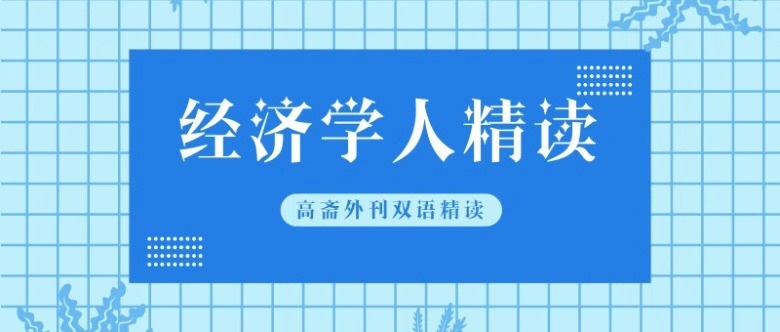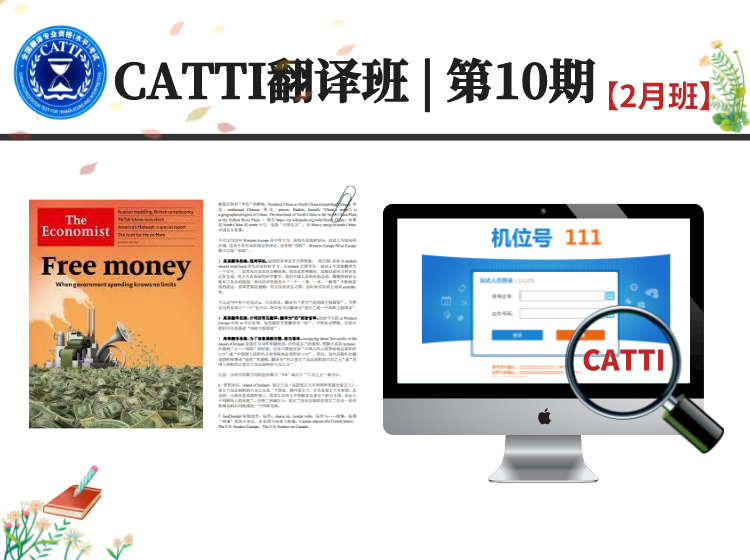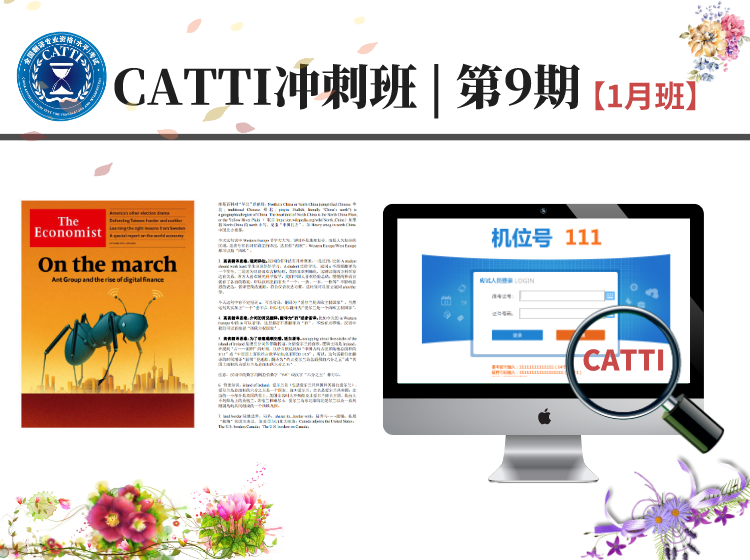我们先来回顾一下整个事件。2019年3月27日,一个名为“996ICU”的项目在GitHub(全球最大代码共享社区)上传开,讨论从技术社区开始,在互联网公司的微信群流传开来,蔓延到豆瓣、知乎,很快上了微博热搜。程序员们揭露“996ICU”互联网公司,抵制互联网公司的996工作制度。966工作制
经济学人对中国程序员发起的这场“反996运动”进行了报道,它是这么说的:
Their beef is the “996” regime, which refers to a work schedule of 9am to 9pm, six days a week, often without extra pay.
他们抱怨的是“996工作制”,即朝九晚九,一周工作六天,通常无加班费。
1. beef在这里是一个熟词偏意的用法。如果把它理解为“牛肉”,可就要闹笑话了。beef作名词,还有一个用法,表示“抱怨、牢骚”之意。
可以说one’s beef is sth/that...例如:
The wife's beef is that the husband is hitting the bottle too much.
妻子抱怨丈夫喝太多酒。
注意:hit the bottle不是“打烂瓶子”,而是“酗酒”的意思,相当于excessive drinking,booze之意。
如:
He hit the bottle whenever things became a bit difficult.
只要稍有不顺心的事,他便去酗酒。
外媒在报道员工不满的时候有这几种表达:
disgruntled Chinese software developers; Fed up with the grindingly long work hours imposed on them by China’s internet giants; Fewer workers now regard such long hours as something to be proud of.
2. the “996” regime:“996工作制”。外刊中对它有多种描述,如:
“China’s notorious 996 work culture”,China’s punishing “996” overtime work culture(punishing作形容词,就是变态的,无人情味的);
“the ‘996’ work schedule”,“Deadly ‘996’ Overtime Culture”,“the 996 approach”,“the ‘996’ business policy”,“the 996 working system”.
如果说企业“实行‘996工作制’,可以用这些动词,do 996,work 996,follow the ‘996’ work schedule,keep a 996 work schedule等等。
“开始实行996工作制”,就可以说be officially switching to 996/will implement a 996 schedule。今年年初,杭州电商公司有赞(Youzan)在公司年会上宣布将实行996工作制,引发员工吐槽不满。外媒是这么报道的:
Just a few months back, The CEO of Youzan, another large Chinese e-commerce company, surprised his employees at their 2019 yearly company party by telling them Youzan is officially switching to 996.
就在几个月前,中国另一家大型电商有赞(Youzan)的首席执行官在公司年会上宣布将正式实行996工作制,这让员工大吃一惊。
3. 如何解释996呢?除了这个which refers to a work schedule of 9am to 9pm, six days a week, often without extra pay,也可以说which actually means that employees work from 9 to 21 hours, six days a wee或under which work begins at 9 am and finishes at 9 pm, six days a week。
4. extra pay,指“额外报酬,额外薪酬”,但这里就是指加班费,我们也可以用overtime pay表示,在外刊精读与翻译课程《新流水线的梦想》那篇里面有rarely get overtime pay or unemployment insurance很少有加班费或失业保险。
也可以用compensation来表示,即often without compensation,支付给员工的报酬,补偿。比如“加班无加班费”还可以说uncompensated overtime。
“966”的特点
一:“996”引发不满的第一个原因就是“工作时间长”。经济学人是这么说的:
Toiling such hours has become an unspoken rule in the frenetic world of Chinese tech.
在狂热的中国科技行业,员工长时间工作已经成了一种不成文的规定。
1. “长时间辛苦工作”就可以用toil这个词,它读作[tɔɪl],这里作动词,指长时间地苦干,辛勤工作。后面直接加泛泛的时间,即Toiling such hours长时间工作。但是如果跟具体的时间,就加for,如work for no more than eight hours 每日工作时间不超过八小时。
它也可以作名词,金融时报上在说到打工者辛苦劳作时是这么说的:
Makeshift buildings lean precariously over the lanes, and labourers hurry home through the dirt after 12 hours of toil.
巷子里的简易房屋摇摇欲坠,打工者们在12小时的辛劳工作之后,风尘仆仆地赶回家中。
“辛苦工作”还有一个表达叫toil and moil。例如“一年到头苦干”就可以说“toil and moil all the year round”。
“996制度下长时间辛苦工作”在外刊里面的同义表达有:
A. “a grueling work schedule”;Grueling表示“使人极度疲劳的,使人筋疲力尽的”。《每日邮报》上在报道“996”时说道:he was left exhausted by his grueling work schedule which fueled his depression. 繁重的工作使他筋疲力尽,更加抑郁。
B. “the grindingly long work hours”;Grindingly指“苦不堪言地,苛刻地,虐待地”。举个例子,Nursing was ill-paid and grindingly hard-working. 护士工资低,而且每天累得要死。
C. “due to long hours and grueling stress”。
D. “clocked out at 11.16pm on average”:如经济学人是这么说的Staff at jd.com, an e-commerce firm, clocked out at 11.16pm on average电商企业京东的员工平均晚上11.16打卡下班。
E. “employees were left exhausted/burned out/worn out”。
2. an unspoken rule 一种不成文的规定,在外刊里面还有这些说法 has become a new normal among Chinese companies;become the norm for employees of internet companies成了一种新常态。也可以如100元31篇外刊里面学到的has become a way of life.
3. in the frenetic world of Chinese tech:frenetic [frəˈnetɪk]狂热的。World这里不是世界的意思,而是指行业、领域,所以这个翻译为狂热的中国科技行业/领域。
二:危害人体健康。正是因为“966”制度下不合理的工作时间,“996ICU”(工作996,生病ICU)才兴起。外媒是这么报道的:
In late March anonymous activists created a webpage called 996.icu (the letters standing for “intensive care unit”).
三月底,有匿名程序员创建了一个名为996.icu的网页(icu即intensive care unit “重症监护室”)。
By following the ’996’ work schedule, you are risking yourself getting into the ICU.
“996工作制”下,员工冒着进重症监护室的风险。
the relentless nature of the work culture now seems to betaking a toll on tech workers powering the sector.
如今看来残酷的工作文化给辛苦贡献的技术人员带来了痛苦。
1. standing for 经常放在缩略字面后面表示代表。这里就是icu standing for “intensive care unit”,括号里面只是补充说明的,所以是standing,而不是stand。
2. risking yourself getting into是risk oneself doing sth的用法,表示冒着干什么的风险。
3. take a toll是固定表达,意思是“造成恶果(不利影响,后果等)”。相当于affect, have a detrimental effect on, be harmful to。经济学人在表达“高昂物价使生活水准大打折扣”时是这么说的:
But despite 15 years of deflation, Japan's punishingly high prices still take a toll on its residents' standard of living. (punishingly在这句里面是极其,变态的意思,punishingly high prices就是高昂的物价)
尽管日本连续15年出现通货紧缩,其高昂的物价仍然使居民的生活水准大打折扣。
抵制“996”
外媒是这么报道的:
Office workers in China organise a rare online labour movement.
中国技术人员在网上发起了罕见的劳工运动。
1. Office workers在外媒上还有tech workers, techies(这个外刊精读与翻译班里面也讲过),protesters;
non-compliers(外刊是这么说的told non-compliers with it, more or less, to quit);
The anti-996 campaigners(经济学人是这么说的The anti-996 campaigners have a point. )
2. a labour movement也可以说a movement demanding more humane office hours
“正常工作制”——“955”
GitHub上同样讨论火热的,与“996”相对的还有一个“955.wlb”(standing for “work-life balance”)。所谓955,就是每天9点上班,下午5点下班,每周工作5天时间。而WLB,就是Work-Life Balance,即工作生活平衡。
我国劳动法规定:
Article 36 of China’s labour law states that “The State shall practice a working hour system wherein labourers shall work for no more than eight hours a day and no more than 44 hours a week on average.”
中国劳动法三十六条规定:国家实行劳动者每日工作时间不超过八小时、平均每周工作时间不超过四十四小时的工时制度。
1. states规定,也可以说stipulates。
2. 在法律英语中,中文里的“应”,“应当”之意常用英文的shall来表示,包含权力义务和责任的含义。
再比如说,我国劳动法第38条规定:
Article 38:The employing unit shall guarantee that its staff and workers have at least one day off in a week.
用人单位应当保证劳动者每周至少休息一日。
3. practice是动词,表示“实行”之意。还可以表示练习,例如Our programme ensures daily opportunities to practice your study language with native speakers. 我们的学习课程保证你们每天有机会和讲母语的人一起进行语言练习。
按照劳动法的规定,“955”才是正常的工作制度。
“正常工作制”可以说“a typical eight-hour office lifestyle”;“normal’ work hours”;如果并非特别强调时间的话,也可以说“more relaxed/healthier working/work hours”。可见,work也可以说working。
新西兰信托服务商Perpetual Trust每周4天工作试验结果显示,效率提高、员工精神压力减少。对此,The Sun上是这么说的:
Four-day working week really is secret to happier, healthier life, experts say.
专家表示,一周工作四天是健康幸福生活的秘诀。
因此,“正常工作制”我们也可以说“healthier working hours”。
对待工作与生活的态度
千禧一代与上一代人对工作与生活的态度不同,我们来看外媒的一个报道:
The online complaints and discussions also come amid young people's changing attitudes toward life and work, and rising rights protection awareness. With improved living standards, more Chinese people have adopted a "work hard, play hard" lifestyle, compared with the older generations' "work to live" mind-set.
年轻人对工作与生活的态度发生了转变,权利保护意识也不断增强,因此网上对“996”的讨论和抱怨纷至沓来。老一辈人认为“工作即生活”,但随着生活水平的提高,越来越多年轻人开始抱着一种“努力工作,尽情玩乐”的生活态度。
1. amid的用法公众号之前有一篇文章单独讲到,这里那就不多加赘述,大家可以自行复习“amid”在《经济学人》中是怎么使用的?这里表示“在某种情况下/某种局面中”,表示大环境,大背景,大氛围。
2. attitudes toward,注意“对……的态度”,用的介词是toward。
3. adopt,动词,表示“采取,采纳,采用”。例如采取态度,采纳措施。
经济学人上说:The campaign is now trying to get other countries to adopt similar rules.
该项行动正尝试让其他一些国家采取类似的措施。
再比如说,We should adopt a healthy lifestyle. 我们要采纳健康的生活方式。
今天这里的adopt,也可以说embrace,即more Chinese people have been embracing a "work hard, play hard" lifestyle
4. compared with the older generations' "work to live" mind-set:这里是在拿如今年轻人对待工作与生活的态度和老一辈人进行比较。“work to live”,to表示目的,所以是“工作即生活”的意思。
老一辈人觉得工作是为了更好地生活,所以他们愿意牺牲自己的生活来努力工作;但今天的年轻人认为工作要努力,同时也要享受生活,尽情玩乐,工作和生活间不能没有空隙。再加上权利意识的增强,年轻人对“996”才会产生诸多不满。
5. "work hard, play hard":英语里面有个谚语:
“All work and no play makes Jack a dull boy.”
“只学习不玩耍聪明的孩子也变傻 ”。
所以现在的千禧一代还是比较注重生活品质的,"work hard, play hard"“努力工作,尽情玩乐”。也就是我们父母常跟我们说的”学习的时候好好学,玩耍的时候好好玩“,”工作的时候好好工作,玩的时候好好玩“。
今天就分享这么多,希望我们都可以"work hard, play hard"“努力工作,尽情玩乐”。

最近,“996工作制”持续引发社会热议。我这几天看完了经济学人还有其他外媒网站上的十几篇文章,今天就把一些精彩句型和表达分享给大家。
|
经济学人精读:996,是努力工作,还是尽情玩乐
文章来源:高斋外刊双语精读
发布时间:2019-08-23 16:21
作者:高斋外刊双语精读
点击:次
|






